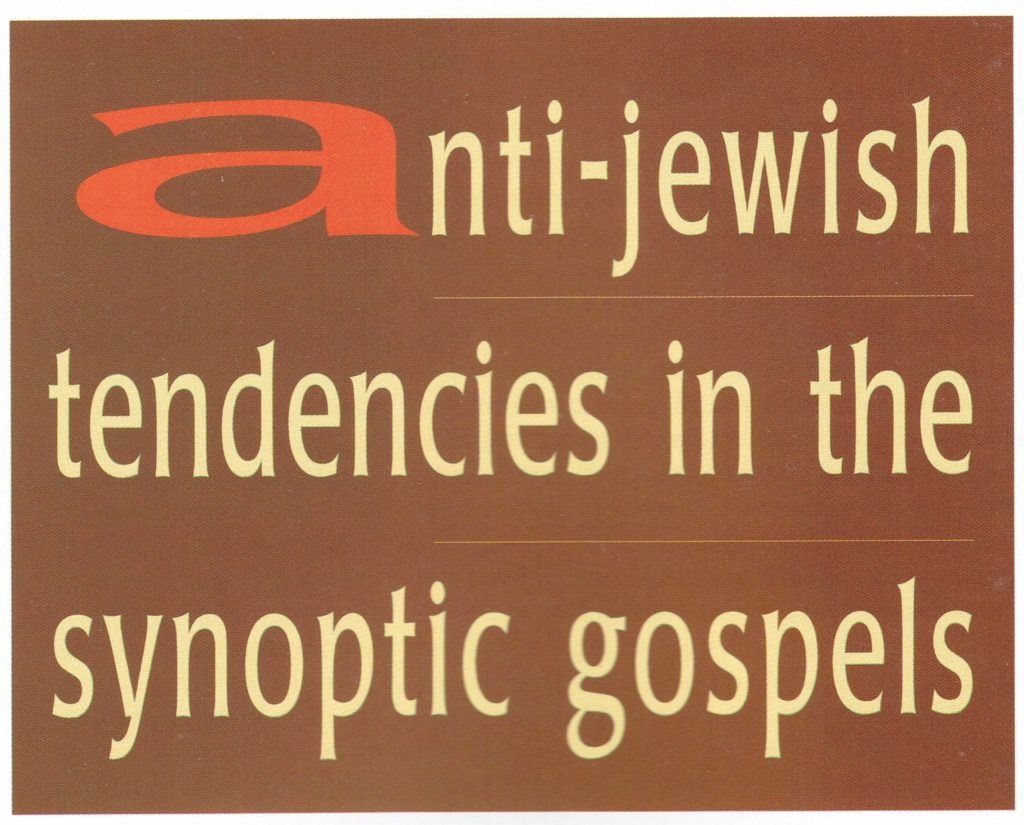Comment from Edwin A. Mass (Rockford, Minnesota, U.S.A.) that was published in the “Readers’ Perspective” column of Jerusalem Perspective 52 (Jul.-Sept. 1997): 10-11.
First let me tell you that I am one of your first subscribers and have devoured each issue as soon as it showed up in the mail. I love Jesus, and any new light you can shine on his walk on the earth is greatly appreciated. But, I was profoundly insulted by the whole tenor of your last issue [the reader refers to the major article, “Anti-Jewish Tendencies in the Synoptic Gospels,” which appeared in Jerusalem Perspective 51 (Apr.-Jun. 1996): 20-35, 38]. There is an evil which is labeled “anti-Semitism.” It was fashioned by Satan. There is another evil—it has no label—which is characterized by finding anti-Semitism where it is not, in an attempt to stir up hatred between Jews and their friends. How can you characterize anything Jesus said or did, or even any commentary by Matthew, Mark or Luke as anti-Semitic?
Jesus was a Jew. The disciples were Jews. All the early Christians were Jews. If a Jew mistreats a Jew, does that make him anti-Semitic? If so, the Pharisees (Jews) were anti-Semitic. Saul of Tarsus imprisoned and killed Jews (obviously anti-Semitic behavior), until he was stopped by Jesus. If the target of someone’s fury is against Jews, does that make him anti-Semitic? Then David was anti-Semitic when he warred against Saul’s former followers.
I do not deny that much evil exists which is rightly labeled anti-Semitism. The Lord is their judge. But Jesus said there would be war, brother against brother, over doctrine. It is not Jews (the Pharisees) that Jesus hated, but rather the doctrine of the Jews (the Pharisees) which enslaved and blinded the eyes of those who followed it. To the extent the church is against the doctrine of the Jews, they are no more anti-Semitic than David. To the extent that they hate Jews because they are Jews, they will have to answer to the Judge of the Universe.
Steven Notley responds:
You are absolutely correct in saying that the Christian anti-Semitism of later centuries had nothing to do with Jesus and his first followers. In “Anti-Jewish Tendencies in the Synoptic Gospels,” never do I suggest that either Jesus or his first disciples harbored ill will toward Judaism. Instead, I have tried to trace the rising tensions that developed between the early Christians and their Jewish contemporaries—which I have described as “anti-Jewish tendencies.” This is an important distinction. These tensions, which most historians recognize resulted from the Church’s growth and departure from its Jewish context, provided fertile ground for the development of Christian anti-Semitism in later centuries.






